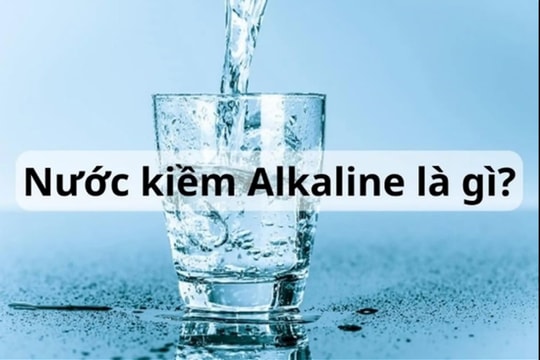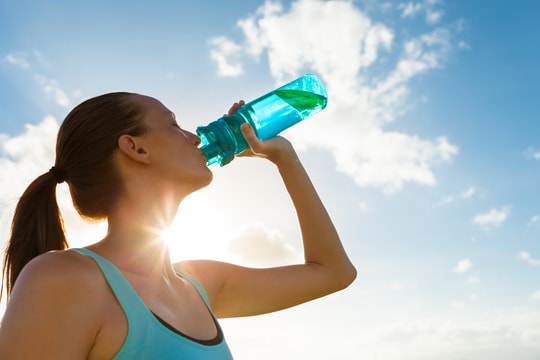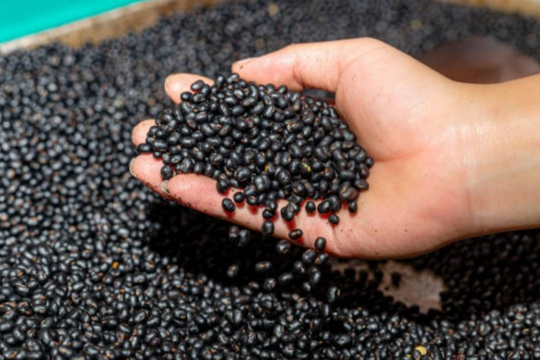How much water do you really need to drink a day?
During the hot summer days, staying hydrated is more important than ever. This article will help nutritionists clarify how much water you should drink each day and how to maintain this habit effectively.
Hot summer days mean we spend more time outdoors, from walking, playing sports to picnics. However, under the scorching sun, staying hydrated is more important than ever.
.jpg)
Rising temperatures cause your body to sweat more, increasing the risk of dehydration if you don’t replenish it quickly. But the question is, exactly how much water should we drink each day? Is the popular advice of “8 glasses of water a day” (about 1.9 liters) really reliable, or just another outdated health myth?
Nutritionist Renee Fitton – Education Director at nutrition technology company L-Nutra (USA) said that drinking 8 glasses of water a day can be a good starting point, but it is not always suitable for everyone.
How much water do you really need to drink a day?
According to nutritionist Renee Fitton, there is no one-size-fits-all formula when it comes to daily water needs. The amount of water needed depends on many factors such as body size, physical activity level, gender, medications used, climate, health status and even altitude where you live.
For years, the “eight glasses of water a day” rule, or about 1.9 liters, has been passed around as health wisdom. However, Fitton says there is no concrete scientific basis to support this advice.
In fact, it’s just one of those “health myths” that’s been repeated so often that most of us take it for granted. While it’s not harmful, 1.9 liters a day may be too much for some people and too little for others.
“For some people, simple guidelines like this can help them stick to good habits. If drinking eight glasses of water a day helps someone stay hydrated, that’s a good starting point. But I wouldn’t consider it the gold standard,” Fitton said.
Currently, there is no official and unified recommendation on the optimal amount of water each person should drink daily, because each individual has different needs.
However, the National Academies of Sciences, Engineering, and Medicine (NAM) recommends an “adequate water intake” for adults of about 3.7 liters for men and 2.7 liters for women.
Notably, this number includes not just plain water, but also fluids from other beverages like tea, milk, sports drinks, even coffee, along with water from foods like fruits, vegetables, soups or oatmeal.
In other words, the amount of water you take in each day comes from many sources, and how you allocate it depends on your personal habits and needs.
While there is no one-size-fits-all number, one thing is certain: listening to your body, keeping your thirst at a reasonable level, and combining it with a balanced diet will help you effectively control dehydration, especially during the hot summer months.
When should you drink more water than usual?
Not everyone needs the same amount of water each day, and in some cases your water needs can increase significantly. Here are some common reasons why you may need to drink more water than usual.
1. You have a job that requires a lot of movement
If you frequently move or work outdoors, especially in hot weather, your body will sweat more and lose water faster.
The Centers for Disease Control and Prevention (CDC) recommends drinking about 1 cup of water every 15–20 minutes when working in high temperatures. Drinking water before and after working out is also important to maintain stable hydration levels.
2. You exercise regularly
Even if you don’t do manual labor but still exercise regularly, whether in the gym or through outdoor activities such as jogging, cycling, yoga, you still need to replenish more water than usual. The body loses water during exercise, even in cold weather conditions, so timely rehydration is essential.
3. You live in a hot, dry climate
High temperatures and dry air increase the rate at which water is lost through the skin and breathing. People living in desert or low-humidity climates often need to drink more water than those living in tropical or temperate climates.
4. You are pregnant or breastfeeding
Pregnant women need more water to support blood circulation, nutrient absorption and fetal nourishment. For breastfeeding women, adequate water intake also helps the body produce breast milk more regularly and effectively.
5. Your urine is dark in color
According to nutritionist Renee Fitton, observing the color of your urine is one of the simplest and most accurate ways to assess your hydration status throughout the day. Ideally, your urine should be pale yellow. If the color changes to dark yellow or amber, it is a clear sign of dehydration.
6. You show signs of dehydration
The body constantly sends out signals when it is dehydrated, such as dry mouth, chapped lips, muscle cramps, headaches or unexplained fatigue. “Water plays an essential role in every life activity. When the body is dehydrated, it cannot function optimally and this can manifest in different ways for each person,” Fitton emphasized.
While fixed numbers aren't always necessary, correctly identifying situations that call for increased water intake will help you be more proactive in taking care of your health, especially during the hot summer months.



.jpg)

